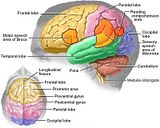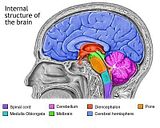Children who develop astrocytoma should be monitored regularly by their physicians to ensure that the tumor does not recur. A follow-up schedule should be discussed with the doctor; the child may be examined twice a year initially, then tested annually afterwards. In addition to the possibility of recurrence, other health problems due to treatment may arise in the child. The child may have lower levels of growth hormone or thyroid hormone or delayed growth as a result of radiation.
There may also be decreased intellectual capacity or learning or physical disabilities that can be detected during follow-up. Parents can then arrange for rehabilitation or special education for their child.
Adults may also experience permanent negative effects as a result of their treatment. Radiation damage to healthy tissue may occasionally cause delayed effects such as decreased intellect, impaired memory, changes in personality, and confusion. These types of side effects should be reported to a health professional; the patient can be referred to rehabilitation specialists who can help with regaining abilities.
There may also be decreased intellectual capacity or learning or physical disabilities that can be detected during follow-up. Parents can then arrange for rehabilitation or special education for their child.
Adults may also experience permanent negative effects as a result of their treatment. Radiation damage to healthy tissue may occasionally cause delayed effects such as decreased intellect, impaired memory, changes in personality, and confusion. These types of side effects should be reported to a health professional; the patient can be referred to rehabilitation specialists who can help with regaining abilities.








0 comments:
Post a Comment